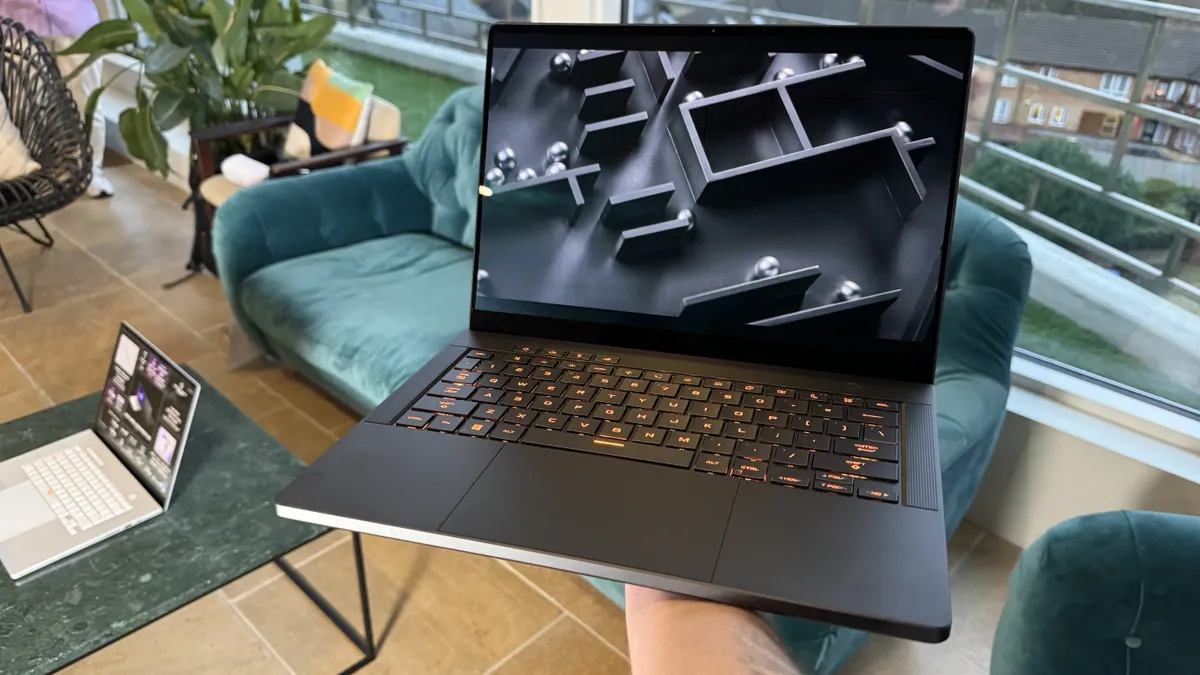
CES 2025 is a significant one for gaming, thanks to Nvidia’s new GPUs, and Asus has risen to the occasion by updating the vast majority of its gaming lineup.
However, while the differences externally are minor, there is plenty to write home about both on the outside and inside — from new CPUs and graphics cards to a new form of laptop upgrading that is a cinch.
For me personally, the Asus ROG Flow Z13 is the one I’m most excited about. But there’s plenty going on in the lineup.
The Windows MacBook Pros return
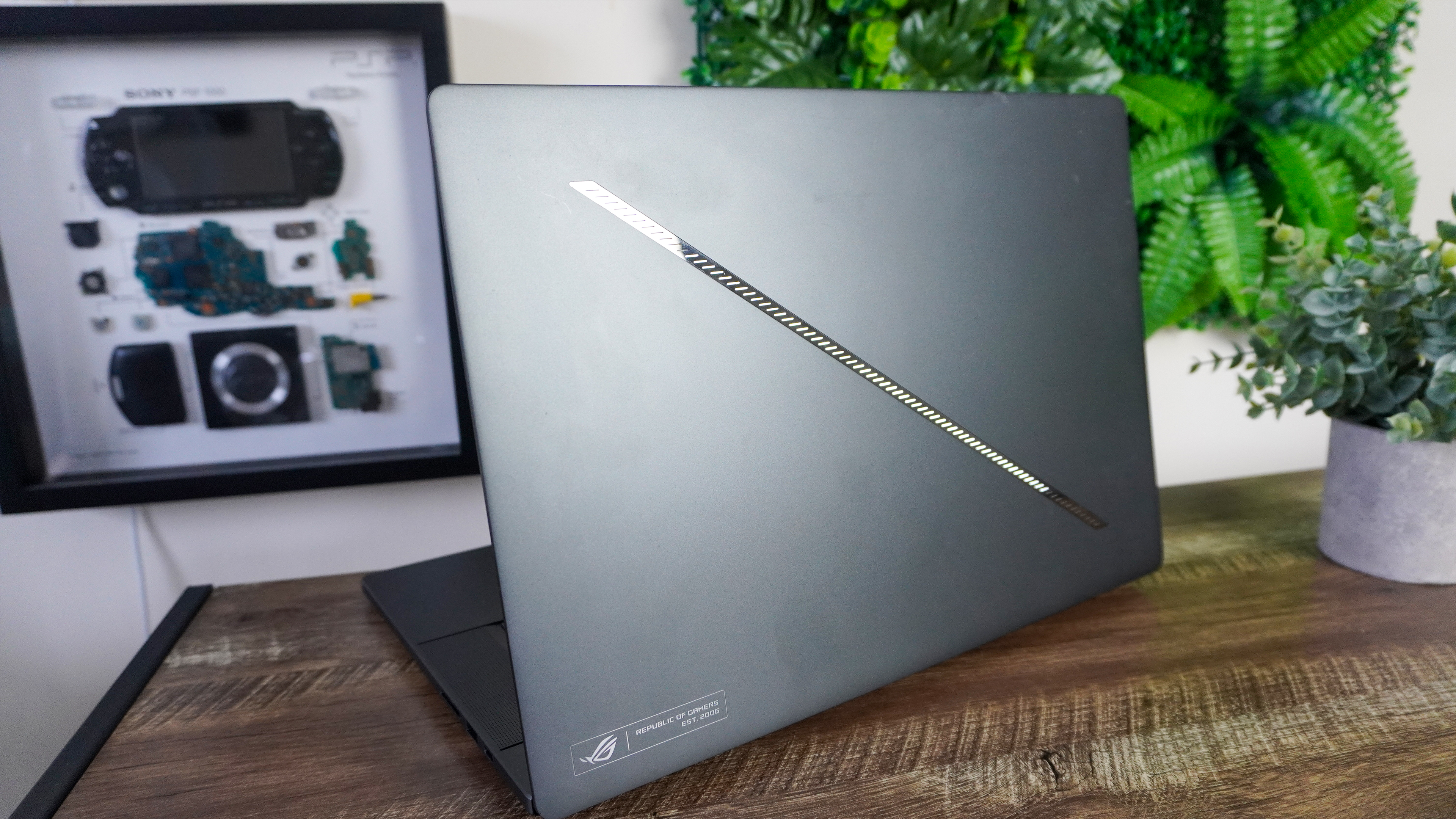
The ROG Zephyrus G14 continues to be our favorite gaming laptop, whereas my relationship with the Zephyrus G16 was a complicated one (in short: blame Intel). However, the refresh should go some way to tackling this. In short — same everything else, just new CPUs from Intel or AMD and the new Nvidia RTX 50-series GPUs.
That means the same jaw dropping OLED panel, same sleek all aluminum construction, and same stellar ergonomics. But shout-out in particular to the couple of changes on board for these, including the fact the Zephyri can be charged on both sides (finally), and the DisplayPort 2.1 support to hopefully really give those new 480Hz monitors a run for their money.
Performance and power efficiency
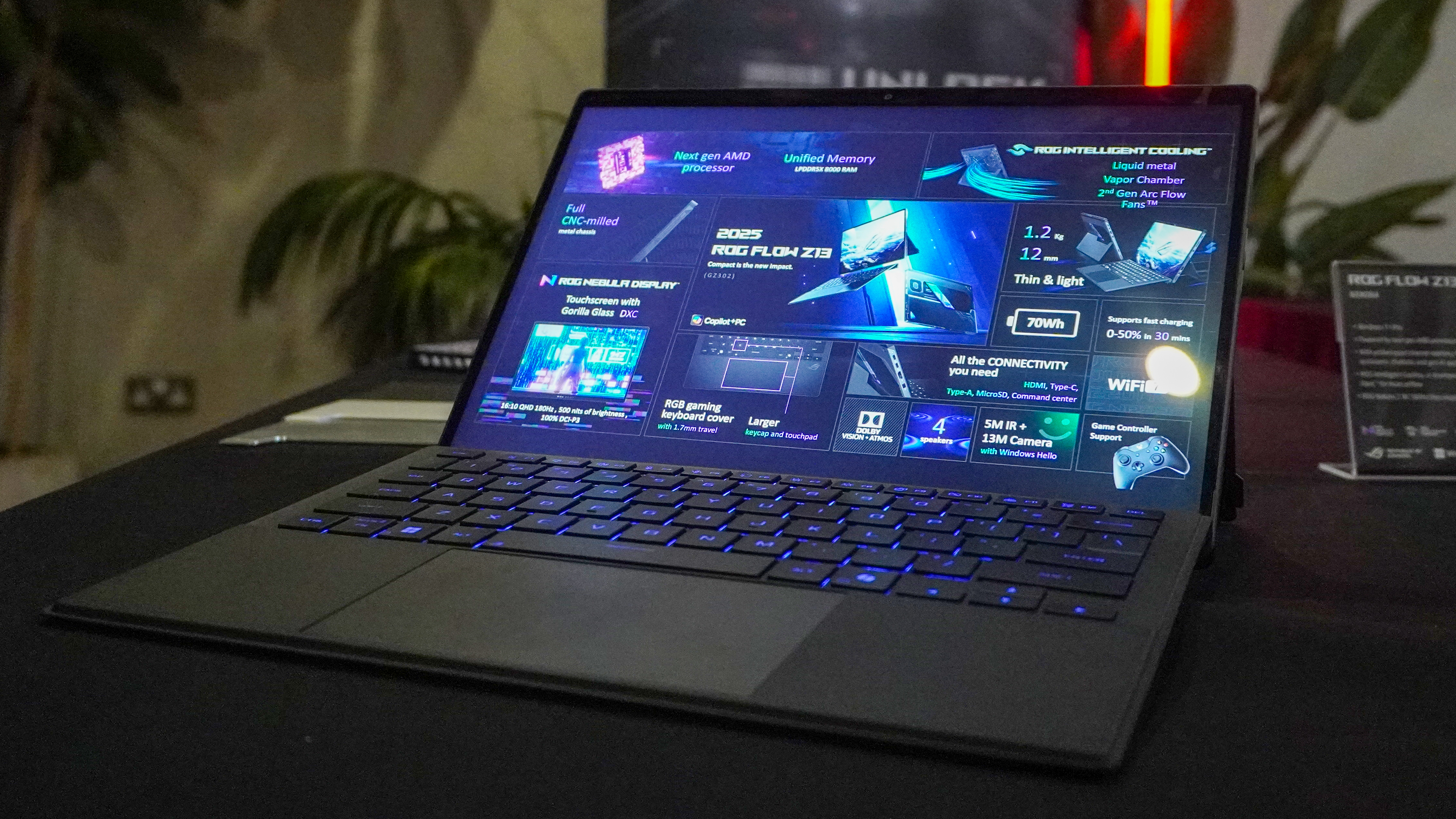
Historically, Asus has had to rely on a relatively underpowered dedicated GPU for all the gaming needs. Not to say this was an overtly bad decision, but it was some that came with some downsides — namely poor graphical fidelity paired with bad battery life. No matter how low you tune a dedicated GPU, it's still a power hog.
Well that’s where the AMD Ryzen AI Max+ 395 APU comes in. Rocking 12 cores and 24 threads, alongside a beasty 32 graphics cores, leaked benchmarks and all other signs point to this being as powerful as an RTX 4060. Not only that, but you get all of this gaming potential at a vastly lower TDP too.
This means Asus has the confidence to claim this machine has up to 10 hours of battery life. Hopefully, the claim isn’t overblown, but I’m definitely looking forward to testing this with a breeze through a AAA game — see what comes of it.
Strixing the record
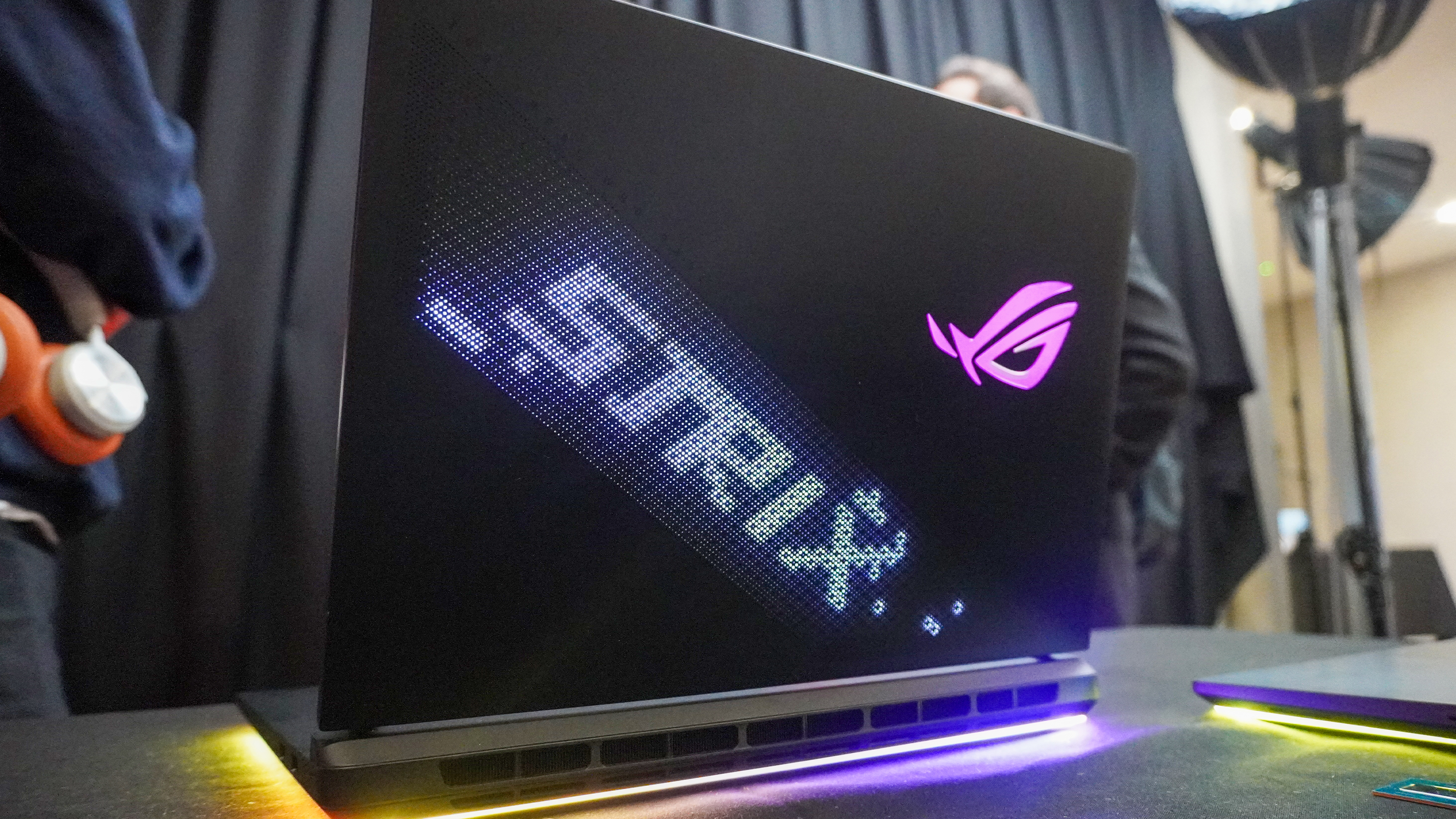
Meanwhile, if sleekness is not your main concern, ROG Strix and Strix Scar are the ways to go — bringing frankly bonkers specs to their 16 and 18-inch shells. Chances are you’ve heard this already in many places, with up to 64GB DDR5 RAM, RTX 50-series graphics, new AMD or Intel processors to give these the full Copilot+ PC treatment, and 2.5k mini-LED displays with 240Hz refresh rate, these are solid PC gaming pro choices.
But shout-out in particular to the tooless upgrades of the SSD. Simply pop the switch and take the entire back off. You can even change the drive without using a screwdriver — this is significant and I hope other companies learn from this!

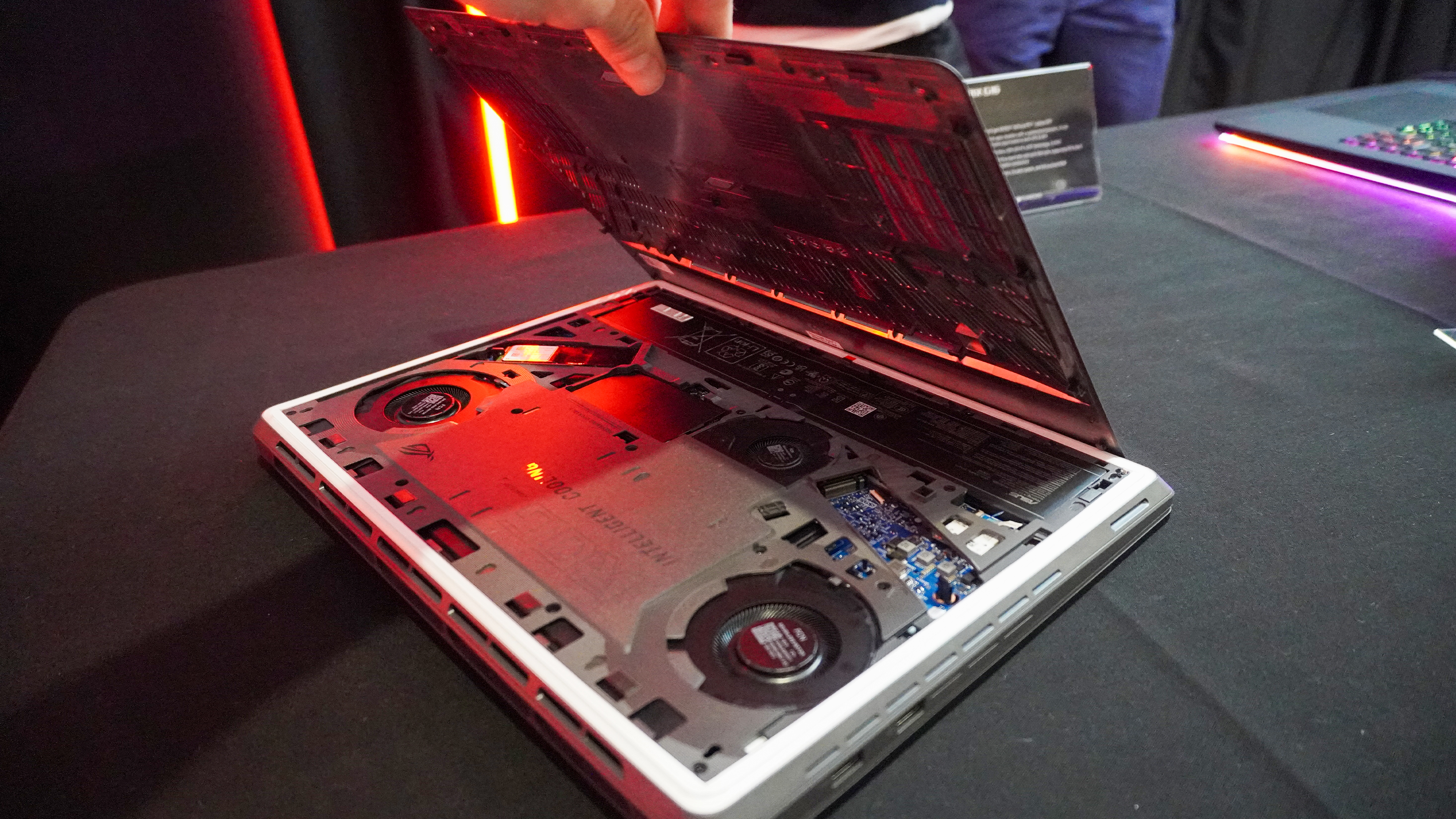
Outlook
Like I said, the generational leaps for gaming laptops may be hard to see on first glance, as everything new is popping off under the hood with new chips galore. Nvidia is bringing unfounded levels of graphical fidelity potential to the table, and after my time trying these, I’m confident you’ll be just as mind-blown as I am — especially by the next gen DLSS.







